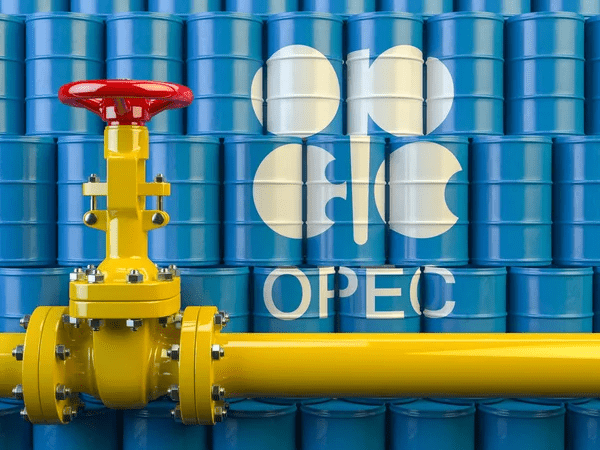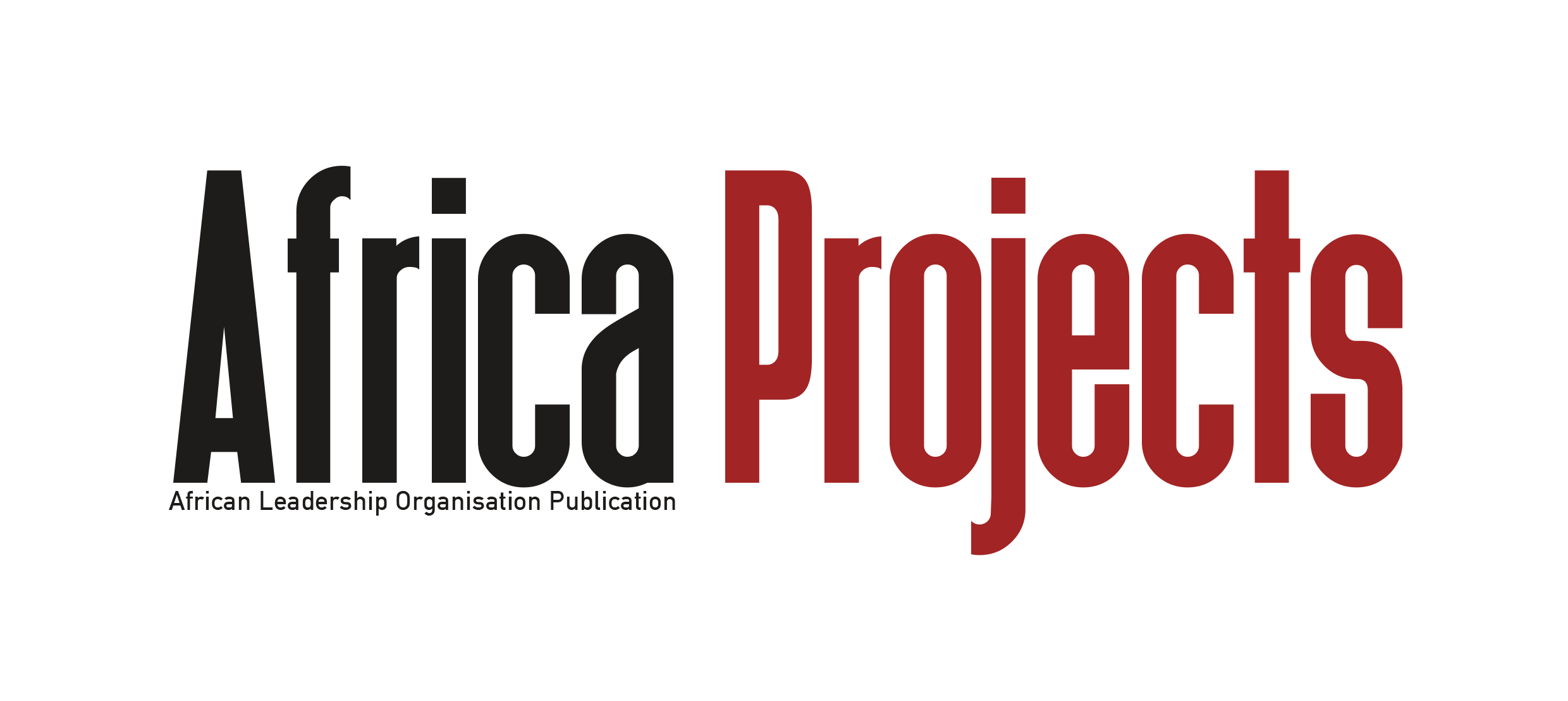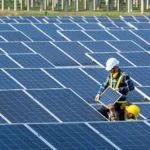- Home
- Features
- Startup Zone
- Projects
- Policies
- Shop
- Policies
- Projects
- Startup Zone
- Country Spotlight
- Analysis
- Tech
- Policies
- Projects
- Startup Zone
- Country Spotlight
- Analysis
- More
- Beyond the Kalashnikov: Africa’s Shift Toward Technology-Driven Warfare
- Afrail Express: Uniting a Continent on Rails
- AFRICA’S ENERGY CORRIDORS: CONNECTING POWER, PEOPLE, AND PROSPERITY
- Startup Lions Campus: Empowering Kenya’s Digital Generation
- L’Art de Vivre’s Le Paradis de Mahdia: Tunisia’s Model for Sustainable Luxury
- The Lobito Corridor: Rewiring Africa’s Trade Arteries Through Strategic Infrastructure
- AFRICA’S GREEN ENERGY TRANSITION: A BEACON OF HOPE FOR CLIMATE ACTION
- Dangote Refinery: Showcasing Africa’s Project Success Story
- AFRICA GREEN ECONOMY: ALL YOU NEED TO KNOW
- The Most Important Amicus Brief in the History of the World
- The Rise of Indigenous UAVs: Africa’s Drone Capabilities in Warfare and Surveillance
- AFRICA’S LARGEST OIL PRODUCERS: A COMPREHENSIVE OVERVIEW
- Beyond the Kalashnikov: Africa’s Shift Toward Technology-Driven Warfare
- Afrail Express: Uniting a Continent on Rails
- AFRICA’S ENERGY CORRIDORS: CONNECTING POWER, PEOPLE, AND PROSPERITY
- Startup Lions Campus: Empowering Kenya’s Digital Generation
- L’Art de Vivre’s Le Paradis de Mahdia: Tunisia’s Model for Sustainable Luxury
- The Lobito Corridor: Rewiring Africa’s Trade Arteries Through Strategic Infrastructure
- AFRICA’S GREEN ENERGY TRANSITION: A BEACON OF HOPE FOR CLIMATE ACTION
- Dangote Refinery: Showcasing Africa’s Project Success Story
- AFRICA GREEN ECONOMY: ALL YOU NEED TO KNOW
- The Most Important Amicus Brief in the History of the World
- The Rise of Indigenous UAVs: Africa’s Drone Capabilities in Warfare and Surveillance
- AFRICA’S LARGEST OIL PRODUCERS: A COMPREHENSIVE OVERVIEW
- Beyond the Kalashnikov: Africa’s Shift Toward Technology-Driven Warfare
- Afrail Express: Uniting a Continent on Rails
- AFRICA’S ENERGY CORRIDORS: CONNECTING POWER, PEOPLE, AND PROSPERITY
- Startup Lions Campus: Empowering Kenya’s Digital Generation
- L’Art de Vivre’s Le Paradis de Mahdia: Tunisia’s Model for Sustainable Luxury
- The Lobito Corridor: Rewiring Africa’s Trade Arteries Through Strategic Infrastructure
- Startup Zone
Top Insights
AFRICA’S LARGEST OIL PRODUCERS: A COMPREHENSIVE OVERVIEW
Gabon's oil production has decreased in recent years, but the country is working to expand exploration and increase production.



Africa is a global hub for several significant oil-producing countries, with Nigeria, Angola, and Libya leading the pack. These nations play a crucial role in the global energy market, and their oil production has a substantial impact on the continent’s economic growth.

TOP OIL-PRODUCING COUNTRIES IN AFRICA
Nigeria: Africa’s Largest Oil Producer
Nigeria is the largest oil producer in Africa, with an average daily production of 1.61 million barrels per day (mbpd) as of July 2024. The country’s oil production is overseen by the Nigerian Upstream Petroleum Regulatory Commission (NUPRC), which regulates the exploration, development, production, and lifting operations of crude oil and natural gas. In 2023, Nigeria reclaimed its position as Africa’s leading oil producer, achieving a production rate of 1.35 million barrels per day (bpd) in September. The country’s oil production is expected to continue growing, driven by new investments in exploration and production (E&P) and efforts to combat oil theft.
Angola: The Second-Largest Oil Producer
Angola is the second-largest oil producer in Africa, with a production capacity of approximately 1.16 million barrels per day (bpd) in 2022. The country’s oil production is expected to increase, driven by new exploration campaigns and policy reforms. Angola has proven oil reserves of over 9 billion barrels, and its oil production is expected to continue growing, driven by the development of new fields and the expansion of existing ones.
Libya: The Third-Largest Oil Producer
Libya is the third-largest oil producer in Africa, with a production capacity of approximately 946,000 barrels per day (bpd) in 2022. The country’s oil production is driven by its large proven oil reserves, estimated at 46.4 billion barrels. However, Libya’s oil production has been impacted by political instability and infrastructure challenges. Despite these challenges, the country is expected to continue playing a significant role in Africa’s oil production.
Other Notable Oil-Producing Countries in Africa
Algeria
Algeria is the fourth-largest oil producer in Africa, with a production capacity of approximately 970,000 barrels per day (bpd) in 2022. The country’s oil production is driven by its large proven oil reserves and its strategic location in the Mediterranean region.
Egypt
Egypt’s oil production stands at approximately 556,440 barrels per day (bpd), driven by new exploration campaigns and the development of new fields. The country’s oil production is expected to continue growing, driven by the discovery of new oil reserves and the expansion of existing ones.
Republic of the Congo
The Republic of the Congo’s oil production is expected to increase, driven by the development of new fields and the expansion of existing ones, with a production capacity of approximately 275,000 barrels per day (bpd). The country’s oil production is driven by its strategic location in the Gulf of Guinea and its large proven oil reserves.
Gabon
Gabon’s oil production has decreased in recent years, but the country is working to expand exploration and increase production, with a production capacity of approximately 195,000 barrels per day (bpd). The country’s oil production is driven by its strategic location in the Gulf of Guinea and its large proven oil reserves.
Ghana
Ghana’s oil production is driven by the development of new fields, including the Jubilee and Tweneboa Enyenra Ntomme (TEN) oilfields, with a production capacity of approximately 172,000 barrels per day (bpd). The country’s oil production is expected to continue growing, driven by the discovery of new oil reserves and the expansion of existing ones.
OPEC MEMBER COUNTRIES

Africa has six member countries in OPEC:
OPEC’s African Member Countries
Algeria: A founding member of OPEC, Algeria plays a significant role in the organization’s decision-making processes. With 12.2 billion barrels of proven oil reserves, Algeria exports 540,000 barrels per day (bpd) of its total production of about 1.1 million bpd. Algeria’s crude oil production averaged 908,000 bpd in November 2024.
Angola: Angola joined OPEC in 2007 but exited on January 1, 2024, due to disagreements over production quotas. Despite this, Angola remains a major oil producer in Africa, with an estimated 9 billion barrels of proven crude oil reserves. Angola’s crude oil production held steady at approximately 1.1 million bpd in November 2024.
Libya: Libya has been an OPEC member since 1962 and plays a crucial role in the organization’s oil production. Libya’s crude oil production increased to approximately 1.238 million bpd in November 2024, up from 1.097 million bpd in October. Oil remains the cornerstone of Libya’s economy, accounting for a substantial portion of government revenues and export earnings.
Nigeria: Nigeria joined OPEC in 1971 and is one of the organization’s key African member countries. Nigeria cemented its status as Africa’s top oil producer in November 2024, ramping up production to 1.48 million bpd. Despite challenges like crude theft and pipeline sabotage, Nigeria targets an oil production of 2.06 million bpd.
Gabon: Gabon initially joined OPEC in 1975, left in 1994, and re-joined in 2016. In November 2024, Gabon’s oil production remained steady at 0.23 million bpd, above its assigned OPEC target of 0.17 million bpd. Gabon’s oil-reliant economy makes variations in production significant for its economic stability.
Equatorial Guinea: Equatorial Guinea became a member of OPEC in 2017 and contributes to the organization’s oil production. Equatorial Guinea’s oil production reached 0.06 million bpd in November 2024, showing a 20% rise compared to October’s 0.05 million bpd. However, it didn’t meet its OPEC-implied target of 0.07 million bpd.
Additionally, the Republic of the Congo is indeed an oil producer in Africa, but its membership status in OPEC might be what’s causing confusion. After verifying, it appears the Republic of the Congo is not listed among OPEC’s member countries in some recent contexts, possibly due to outdated information or specific conditions around its membership or participation in OPEC activities. If confirmed as a member, the Republic of the Congo would significantly contribute to OPEC’s oil production and decision-making processes, given its oil production levels .
Challenges and Opportunities in Africa’s Oil Industry
Africa’s oil industry faces several challenges, including oil theft and pipeline vandalism, infrastructure challenges, and regulatory frameworks. These challenges affect the profitability and sustainability of oil production in some countries. Despite these challenges, Africa’s oil industry presents significant opportunities for growth and development. The increasing demand for energy globally, coupled with the discovery of new oil reserves, is driving investment and growth in the sector.
Conclusion
In conclusion, Africa’s oil-producing countries play a vital role in the global energy market. Nigeria, Angola, and Libya lead the pack, with other countries, such as Algeria, Egypt, and the Republic of the Congo, also making significant contributions. While challenges exist, the opportunities for growth and development in Africa’s oil industry are substantial. As the demand for energy continues to rise, Africa’s oil-producing countries are well-positioned to capitalize on this trend and drive economic growth and development.
Recent Posts
Related Articles
Cutting-Edge Environmental Conservation Projects and Their Champions
Environmental conservation has entered a decisive era. As climate change accelerates, biodiversity...
ByafricaprojectJanuary 28, 2026Clean Water Access Projects Improving Lives in Underserved Regions
Access to clean and reliable water remains one of Africa’s most pressing...
ByafricaprojectJanuary 19, 2026Industrial Corridors Attracting Global Investors
Across Africa, industrial corridors are emerging as strategic economic arteries driving industrialization,...
ByafricaprojectJanuary 16, 2026The Engineers Behind Africa’s Tallest and Most Iconic Towers
Across Africa, the rise of tall and iconic towers is reshaping skylines...
ByafricaprojectJanuary 15, 2026












